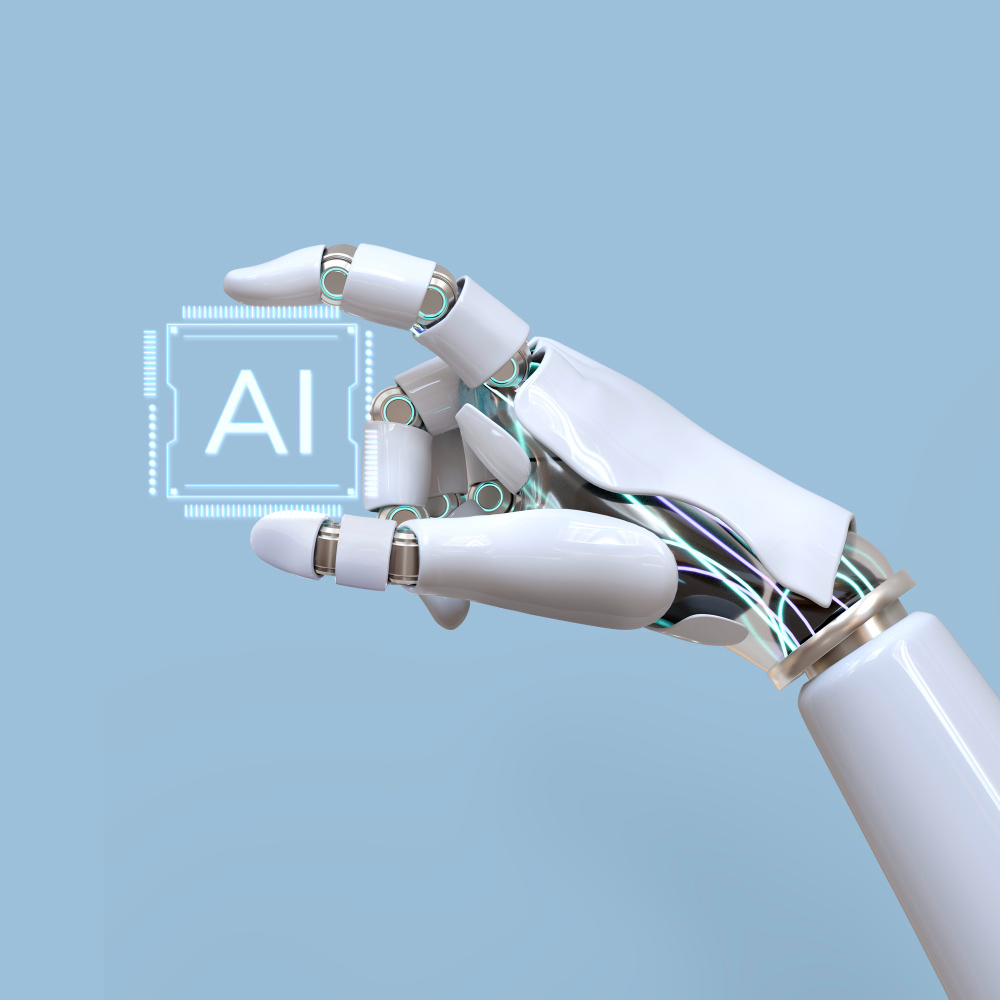
According to a 2024 McKinsey Digital Marketing Report, marketers who leverage AI tools see a productivity increase of up to 40% and revenue growth rates 30% higher than their competitors. This dramatic shift is reshaping how businesses approach their digital marketing strategies, particularly when it comes to creating effective marketing funnels. For decades, marketing funnels have been the backbone of successful campaigns, guiding potential customers from initial awareness to final purchase. However, the traditional methods of building these funnels are rapidly being outpaced by innovative AI-powered alternatives.
As we navigate through 2025, the question isn’t whether to adopt AI funnel builders, but rather how quickly businesses can transition to remain competitive. This article explores the fundamental differences between traditional marketing funnel approaches and their AI-powered counterparts, highlighting why this technological shift represents not just an evolution but a revolution in digital marketing practices.
What Are Traditional Marketing Funnels?
Traditional marketing funnels follow a structured approach to guide prospects through their buyer’s journey, typically divided into four key stages: awareness, interest, decision, and action (often abbreviated as AIDA). This framework has been a marketing staple for decades, helping businesses visualize and plan how to move potential customers toward a purchase.
Creating these funnels traditionally involves manual processes such as:
- Developing separate content assets for each funnel stage
- Manually segmenting customer lists based on limited data points
- Creating static email sequences with minimal personalization
- Setting up fixed workflows with predetermined paths
- Analyzing results through separate reporting tools and making manual adjustments
Marketers typically rely on a combination of tools like HubSpot, Mailchimp, Salesforce CRM, Unbounce landing page builders, and Google Analytics to construct these funnels. While this approach has been effective, it presents significant limitations. Traditional funnels are labor-intensive to create, slow to optimize, difficult to personalize at scale, and often fail to adapt to rapidly changing customer behaviors.
The Rise of AI in Marketing Automation
The integration of artificial intelligence into marketing technology has accelerated dramatically in recent years. What began as simple rule-based automation has evolved into sophisticated systems capable of learning, predicting, and adapting in real-time. AI funnel builders represent the cutting edge of this transformation.
Modern AI marketing tools utilize several key technologies:
- Machine Learning algorithms analyze customer behavior patterns to predict future actions
- Natural Language Processing (NLP) helps create personalized content and analyze customer feedback
- Computer Vision analyzes visual content engagement to optimize creative assets
- Predictive Analytics identifies high-value prospects and optimal conversion pathways
As Neil Patel, founder of NP Digital and recognized marketing authority, notes: “AI isn’t just enhancing traditional marketing—it’s fundamentally changing how we understand customer journeys by revealing patterns humans simply can’t detect at scale.”
According to Forrester Research’s 2024 MarTech Forecast, the market for AI marketing tools is projected to reach $40 billion by 2026, with adoption rates increasing by approximately 30% year-over-year. This rapid growth reflects a fundamental shift in how marketers approach their work, moving from manual campaign orchestration to strategic oversight of intelligent systems.
Comparing Traditional vs. AI Funnel Builders
When evaluating traditional methods against AI-powered alternatives, several key differences emerge:
Setup Time and Complexity
- Traditional: Weeks or months to design, build, and launch complex funnels
- AI: Initial setup in days, with continuous self-optimization
Personalization Capabilities
- Traditional: Basic segmentation with limited variables
- AI: Hyper-personalization based on hundreds of data points, including behavioral signals and predictive modeling
Data Analysis and Insights
- Traditional: Retrospective analysis with manual interpretation
- AI: Real-time analysis with automated insights and recommended actions
Cost Structures and ROI
- Traditional: Higher upfront labor costs with gradual ROI improvement
- AI: Higher initial technology investment with accelerated ROI through automation and optimization
Scalability
- Traditional: Linear relationship between campaign size and required resources
- AI: Exponential scaling capabilities with minimal additional resource requirements
Integration Capabilities
- Traditional: Often requires manual data transfer between systems
- AI: Seamless integration with existing martech stacks through APIs and native connections
A 2024 case study from Shopify highlights this contrast dramatically. Athletic apparel retailer FitGear implemented ConversionAI’s funnel platform and reduced their campaign creation time from 22 days to just 4 days. More impressively, their conversion rate improved by 23%, while reducing their overall marketing team workload by 35%.
Similarly, B2B software provider CloudTech saw a 41% increase in qualified leads after transitioning from their traditional funnel approach to Marketo’s AI-powered Real-Time Engagement platform, as documented in an Adobe Digital Insights report from late 2023.
Benefits of AI Funnel Builders
The advantages of AI-powered funnel building extend far beyond simple efficiency gains:
Enhanced Customer Journey Mapping AI systems can identify patterns and pathways that human marketers might miss, creating more intuitive and effective customer journeys. These systems continuously monitor engagement metrics and adjust touchpoints to optimize for conversion.
As Sarah Johnson, CMO at enterprise analytics firm DataViz, explained in her 2024 MarTech Conference keynote: “We initially encountered resistance to our AI implementation. Team members worried about creative quality declining, but after six months, our customer satisfaction scores actually improved by 18% because the journeys became more relevant to each prospect’s specific needs.”
Predictive Analytics and Behavior Forecasting Rather than reacting to past behaviors, AI funnel builders can anticipate future actions and prepare appropriate responses. This proactive approach allows businesses to address potential objections before they arise and capitalize on purchase intent at precisely the right moment.
Leading platforms like Salesforce Einstein, Adobe Sensei, and HubSpot’s AI tools use machine learning algorithms that analyze historical customer data, website interactions, email engagement patterns, and even social media sentiment to predict which leads are most likely to convert and when.
Dynamic Content Personalization AI can generate and deliver individualized content based on a user’s specific interests, behaviors, and place in the customer journey. This level of personalization simply cannot be achieved through manual methods at any meaningful scale.
A 2024 Gartner study on personalization effectiveness found that AI-generated content personalization outperformed human-created segmentation approaches by 37% in engagement metrics when properly implemented and supervised.
Automated Testing and Optimization AI systems continuously test variations of funnel elements and implement winning versions automatically. This perpetual optimization means funnels become more effective over time without requiring manual intervention.
Enterprise e-commerce platform BigCommerce reported that clients using their AI Optimize tool saw an average 31% improvement in funnel completion rates compared to those using traditional A/B testing methods, according to their 2023 Commerce Trends Report.
Time and Resource Savings Marketing teams can redirect their energy from tactical execution to strategic planning, creative development, and analyzing high-level insights rather than getting lost in the mechanics of funnel management.
Challenges and Considerations
Despite their advantages, AI funnel builders aren’t without challenges:
The learning curve for implementing these new technologies can be steep, requiring teams to develop new skills and knowledge bases. According to the Digital Marketing Institute’s 2024 Skills Gap Analysis, 68% of organizations report challenges finding talent with both marketing expertise and AI proficiency.
Data quality remains paramount—AI systems are only as good as the information they receive, making proper data collection and management essential. A 2023 IBM Watson Marketing study found that organizations with formalized data governance protocols saw 52% better results from their AI marketing initiatives than those without structured approaches.
Implementation challenges can vary significantly by organization size:
- Enterprise organizations typically face integration complexity with legacy systems
- Mid-market companies often struggle with data unification across disparate platforms
- Small businesses may face budget constraints that limit access to enterprise-grade AI tools
However, new mid-tier solutions like Jasper AI Marketing Suite, Seventh Sense, and Anyword are making sophisticated AI funnel capabilities more accessible to smaller organizations.
Privacy considerations have become increasingly important, with regulations like GDPR, CCPA, and the newer Federal Data Privacy Act of 2024 imposing strict requirements on how customer data can be collected and utilized. Organizations must ensure their AI marketing practices remain compliant with evolving regulations by:
- Implementing transparent data collection practices
- Securing explicit consent for AI-driven personalization
- Providing clear opt-out mechanisms
- Conducting regular privacy impact assessments
- Maintaining comprehensive data protection documentation
Integration with legacy systems can present technical hurdles that require careful planning to overcome. And while AI dramatically reduces the need for human intervention, it doesn’t eliminate it entirely—human oversight remains crucial for maintaining brand voice, ensuring ethical practices, and making high-level strategic decisions.
Implementation Framework for Different Business Sizes
Enterprise Organizations (1000+ employees)
- Conduct a comprehensive audit of existing marketing technology
- Develop a phased integration strategy with your CIO/CTO
- Consider custom AI solutions that integrate with proprietary systems
- Plan for extensive team training and possibly new specialized roles
- Implement robust governance and compliance frameworks
Mid-Size Companies (100-999 employees)
- Begin with pre-built AI marketing platforms like HubSpot, Marketo, or Salesforce Marketing Cloud
- Focus on integrating customer data from disparate sources into a unified view
- Start with one channel (e.g., email marketing) before expanding to others
- Upskill existing marketing team through certification programs
- Consider hybrid approaches that blend AI and human-led strategies
Small Businesses (< 100 employees)
- Leverage accessibly-priced AI funnel tools like ActiveCampaign, Drip, or ConvertKit
- Focus on core use cases with immediate ROI potential
- Utilize AI-powered templates rather than building from scratch
- Consider fractional CMO or marketing consultants with AI expertise
- Prioritize quality data collection for future AI expansion
Conclusion
The transition from traditional marketing funnels to AI-powered alternatives represents one of the most significant shifts in digital marketing practice in recent memory. AI funnel builders offer unprecedented advantages in terms of personalization, efficiency, scalability, and effectiveness, enabling marketers to create more compelling customer journeys with less manual effort.
As these technologies continue to evolve and become more accessible, businesses that fail to adapt risk falling behind competitors who can deliver more relevant, timely, and personalized experiences. For forward-thinking organizations, now is the time to evaluate current funnel strategies and consider how AI tools might transform their approach to customer acquisition and retention.
The future of digital marketing isn’t just about adopting new tools—it’s about embracing a fundamentally different way of connecting with customers through intelligent, adaptive systems that learn and improve with every interaction.
Next Steps for Marketers
- Assess your organization’s current funnel effectiveness and identify key performance bottlenecks
- Explore AI funnel building tools appropriate for your business size and technical capabilities
- Start small with one segment or campaign before expanding to your entire marketing operation
- Develop a data strategy that will support increasingly sophisticated AI implementation
- Invest in team education about AI marketing principles and best practices
Sources:
- McKinsey Digital Marketing Report (2024)
- Forrester Research MarTech Forecast (2024)
- Gartner Personalization Effectiveness Study (2024)
- Digital Marketing Institute Skills Gap Analysis (2024)
- IBM Watson Marketing Data Quality Study (2023)
- Adobe Digital Insights Report (2023)
- BigCommerce Commerce Trends Report (2023)


